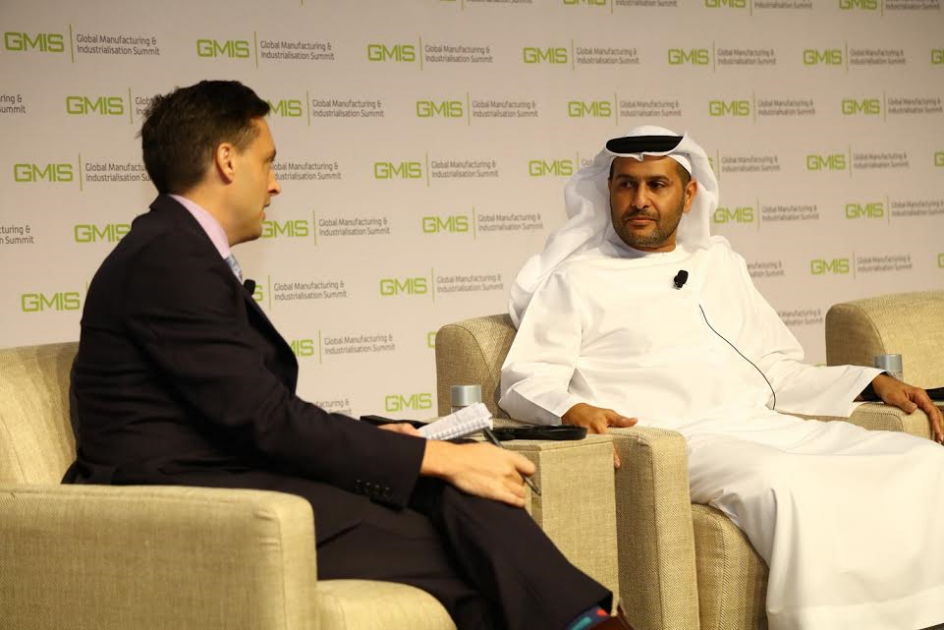
PwC Reveals the Four Guiding Principles to Success at Global Manufacturing and Industrialisation Summit Interview
Manufacturing powerhouses are increasingly under pressure to redefine their competitive advantage in a world transformed by globalisation, said Robert E. Moritz, Global Chairman, PricewaterhouseCoopers, during a keynote address on day two of the Global Manufacturing and Industrialisation Summit (GMIS), taking place at the Paris-Sorbonne in Abu Dhabi.
The address, entitled Shifting Economies and the Trends of Tomorrow, brought to light the growing disparity caused by varying speeds of progress between economies, leading to a widening gap between digital and industrial progress. According to Moritz, companies in every industry are now considering how to succeed in this new environment.
Capitalising upon unlimited access to data collection and information was a subject that Moritz emphasised as being especially important. “We even have drones that can gather data to structure information in an unstructured way. Combined with the world’s unlimited computing storage and capabilities that companies have, learning and analysis would only continue to accelerate to make better and faster decisions. These decisions increase the efficiency of governments, the experiences of the citizens, and the performance of business.”
Discussing trends that affect CEOs and government officials on a worldwide basis, Moritz discussed two major trends in today’s market, the first of which is a blending of sectors. “A manufacturing organisation connects with a services organisation, and a financial services company interacts with a healthcare company. You also see retail consumer services blending into a healthcare company.”
The second trend, according to Moritz, is ‘shortening of the distances’, be it between the manufacturer and the service organisation, or between the apparel company, the production and supply chain that is situated in various parts of the world.
Moving into the topic of global power parity, Moritz expanded on four of ten founding principles that are important to enable success for any business or accelerate change in terms of scaling up user adoptability. These, he stressed would “bring the future to the realities of today”.
The first of these was enhancing technology acumen or digital IQ for companies, stakeholders and employees. Moritz emphasised that every industry exists in a programmable world and digital excellence will give any powerhouse a more competitive edge.
The second principle, ‘designing for customers’, focuses on companies that manufacture products from a customer perspective, that are guaranteed to gain market share on a sustaining basis rather than just being a passing fad.
Principle three was ‘re-looking and examining your entire business model’. Manufacturers that cling to old business models were guaranteed to lose ground to new start-ups that would introduce new products and services at much lower prices. Rethinking business models will allow companies to take advantage of the new platforms and opportunities.
The fourth principle discussed was ‘bringing humanity into the digital world’. With the embracing of technology there is a grave danger of losing the human element, and creating a more collaborative environment between man and machine was suggested by Moritz as a way to avoid technological isolation.
“These four principles are critical for anybody’s success,” Moritz concluded. “The future is already here. It is a reality that no one can forsake, but in order for companies to be successful, these operating principles have to be adopted more so each and every day. It requires both the leaders and the organisations to adopt and execute these guidelines to enable success for the future.”
The inaugural Global Manufacturing and Industrialisation Summit is taking place at the Paris-Sorbonne Abu Dhabi, UAE, until March 30, 2017, under the patronage of His Highness Sheikh Mohamed bin Zayed Al Nahyan, Crown Prince of Abu Dhabi and Deputy Supreme Commander of the UAE Armed Forces. The Summit, which is co-chaired by the UAE Ministry of Economy and the United Nations Industrial Development Organization (UNIDO), is the world’s first global gathering for the manufacturing community, bringing together 1,200 decision-making leaders from governments, businesses and civil society organisations to shape a vision for the sector’s future.
The Summit is a global platform for participating attendees to learn from best practices from across the world. This unprecedented global gathering will spark new ideas and set the stage for debate and action – addressing ways in which manufacturing can shape and reshape the world, integrating activities between developed and emerging markets, and delivering on social responsibility towards future generations. Leaders from the public and private sectors, along with representatives from civil society organisations, will gather to discuss global challenges within the manufacturing sector, looking specifically at six themes: technology and innovation; global value chains; skills, employment and education; sustainability and environment; infrastructure; standards, and stakeholder alignment.



























